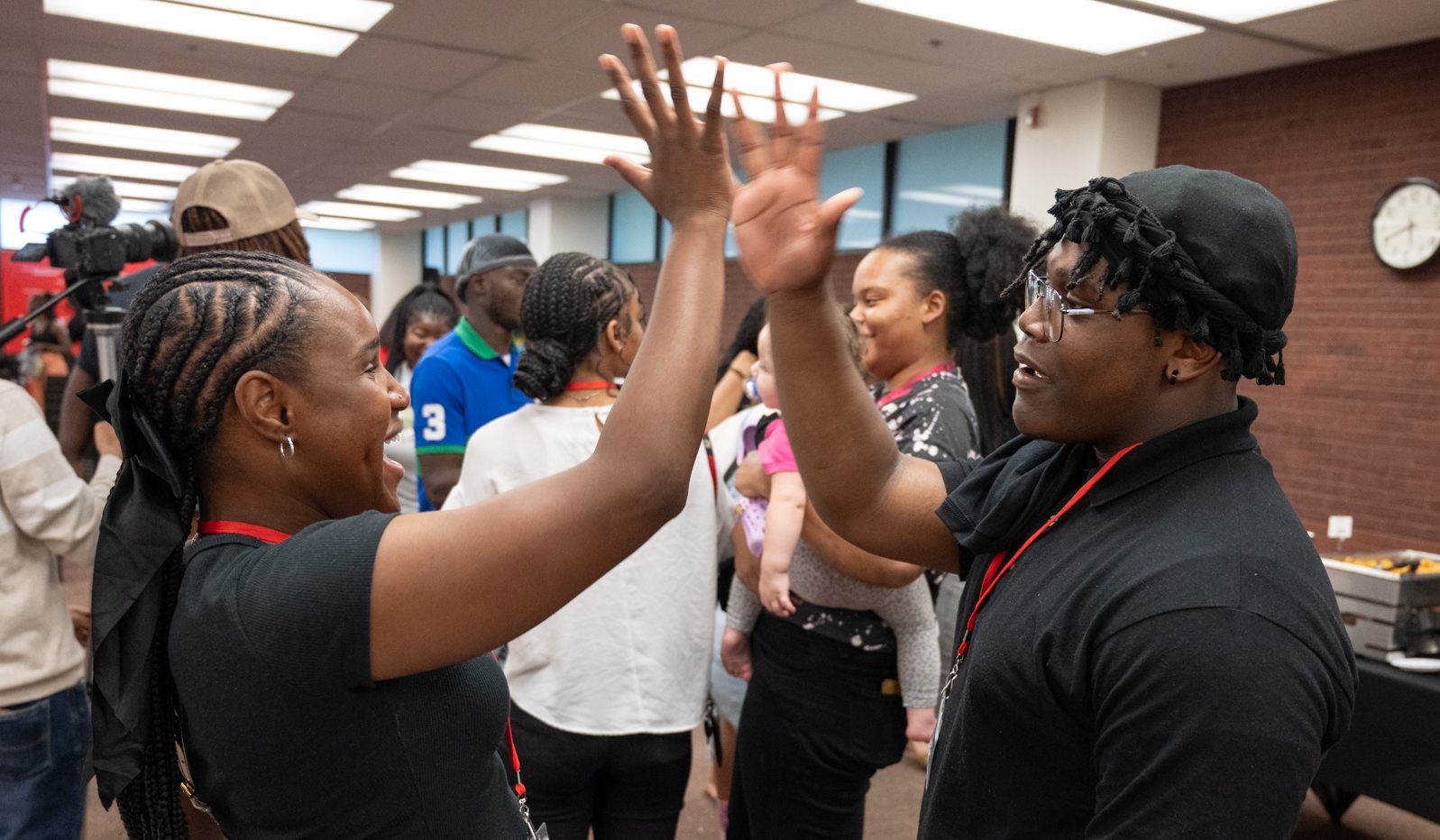Community-Oriented Digital Engagement Scholars Learning Outcomes
1) Civic Engagement
a. Demonstrates ability and commitment to collaboratively work across and within community contexts and structures.
b. Connects and extends knowledge from academic study to civic engagement.
c. Tailors communication strategies to effectively listen, express, and adapt to others to establish relationships both in person and online.
2) Critical & Creative Thinking
a. Systematically analyzes assumptions to develop logical plans to solve problems.
b. Takes risks in assignments and in approaches to learning to create new knowledge.
c. Transforms ideas through synthesizing knowledge from multiple domains.
3) Ethical Reasoning
a. Identifies and analyzes their core beliefs and reflects upon their origin.
b. Recognizes multilayered ethical issues and the cross-relationships among them.
c. Applies ethical concepts to a question and considers their full implications.
4) Global Learning
a. Adapts and applies a deep understanding of multiple worldviews, experiences, and power structures while initiating meaningful interaction with other cultures to address significant global problems.
b. Uses deep knowledge of global systems to develop and advocate for informed, appropriate action to solve complex problems.
c. Applies knowledge and skills to implement sophisticated, workable solutions to address complex global problems using interdisciplinary perspectives.
5) Information Literacy
a. Defines the scope of research questions effectively and selects information cogently to address them.
b. Accesses information using effective, well-designed search strategies and appropriate sources.
c. Responsibly integrates research and demonstrates full understanding of the ethical and legal restrictions on information use.
6) Intercultural Knowledge and Competence
a. Articulates own cultural rules and biases and recognizes and responds to biases.
b. Demonstrates sophisticated understanding of the complexity of elements important to members of another culture in relation to history, values, politics, communication styles, economy, or beliefs and practices.
c. Suspends judgment in interactions with people culturally different than themselves.
7) Skills for Lifelong Learning
a. Explores a topic in depth, yielding a rich awareness and/or little-known information indicating intense interest in the subject.
b. Pursues knowledge and educational experience beyond the classroom.
c. Reviews prior learning inside and outside of the classroom to reveal significantly changed perspectives about educational and life experiences.
8) Oral Communication
a. Uses clear organizational patterns and is skillful at presenting content cohesively.
b. Uses compelling, appropriate delivery techniques.
c. Develops clear, innovative central messages with significant supporting materials.
9) Problem-Solving Skills
a. Constructs insightful problem statements with evidence of relevant factors.
b. Identifies and evaluate multiple approaches for solving problems.
c. Implements solutions to address multiple contextual factors.
10) Quantitative Literacy
a. Skillfully represents quantitative information.
b. Uses quantitative analysis of data as the basis for deep and thoughtful judgments, drawing insightful, carefully qualified conclusions.
c. Uses quantitative information to support arguments and draw logical conclusions.
11) Reading
a. Evaluates texts’ scholarly significance to apply reading to other contexts or issues.
b. Identifies texts within and across genres, monitoring and adjusting reading strategies based on their nuances.
c. Reads using an appropriate lens and can engage in a continuing dialogue within and beyond a discipline or a community of readers.
12) Collaboration
a. Helps collaboration move forward by articulating the merits of alternative ideas.
b. Facilitates collaborators’ contributions by building upon their contributions and noticing when someone is not participating and inviting them to engage.
c. Works independently toward goals by contributing and meeting deadlines.
13) Written Communication
a. Demonstrates a thorough understanding of context, audience, and purpose.
b. Uses appropriate, relevant, and compelling content to illustrate mastery of the subject, conveying the writer’s understanding, and shaping the whole work.
c. Uses language to skillfully communicate with clarity and fluency.
Download a pdf version of the learning outcomes or the outcomes rubric below.
CODES Learning Outcomes Rubric
Updated 2023-06-23

